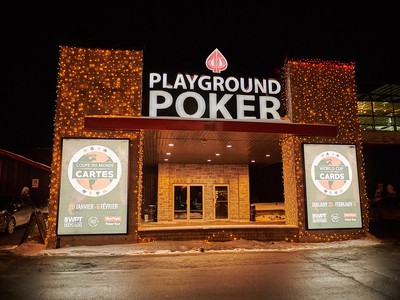Loto-Québec, the provincial lottery that was granted a monopoly on iGaming, reported recently that its gaming sector generated $202.9 million in revenue during Q1 2023, including $50.2 million from online casino gaming.
The lottery also reported that online gaming is the fastest-growing part of its gaming sector, having grown 6.4% year-over-year ($47.2 million) compared to 3.5% ($147 million) from Loto-Québec’s casinos and gaming halls.
But the financials also raise the question — would a regulated market for iGaming, similar to that of neighboring Ontario, have fared any better?
In an exclusive interview with CANGR, Nathalie Bergeron, spokesperson for the Québec Online Gaming Coalition (QOGC), tries to answer that question and others. The full interview is presented below.
Loto-Québec reported that its gaming sector generated $50.2 million from online casino in Q1. By comparison, Ontario reported making $297.8 million in the vertical during their Q1. Québec is obviously a smaller market, but do you think a system with private operators would have made more revenue?
We can’t answer that without a crystal ball, as there is no framework right now to collect and analyze the data. A new regulatory model would allow us to accurately calculate the revenues generated by actors from various sectors of online gaming.
We can only make assumptions based on the fact that at least 50% of consumers who play online have done so on privately operated platforms. However, based on Ontario’s regulatory model, we estimate that the Québec government could earn a minimum of $230 million [CAD] annually in additional revenues by licensing private operators. This, of course, would be complementary to Loto-Québec’s current offer.
Is there anything in the financials that Loto-Québec provided that could be useful in advancing the argument that a market with private operators and an independent regulator (like Ontario) would serve Quebecers better?
The priority, however, should be consumer protection over revenues. In regulated markets, consumers have access to the same high standards of responsible gaming whether they choose to play with the Crown corporation or with private operators.
The reality is that Loto-Québec offers both on-site and online operations, while the offer of the coalition’s members is only online, which makes it difficult to compare both on the same level. What we know is that the demand for online gaming has increased significantly over the past years, and thousands of Quebecers opt for private online gaming sites.
While Loto-Québec claims to have over 50% of Québec’s online gaming market shares, we only need to look at Ontario’s online gaming market to estimate it is less than that. Even if it were accurate, this would still mean that 50% of Quebecers play on privately operated sites, and therefore it would be easy to conclude that a regulated market including private operators would have generated more revenues.
The priority, however, should be consumer protection over revenues. In regulated markets, consumers have access to the same high standards of responsible gaming whether they choose to play with the Crown corporation or with private operators. That should be the first evaluation criteria.
Have there been any new developments? Is the QOGC planning to meet with the Finance Ministry or any other provincial officials or lawmakers anytime soon?
We are pleased to have met with various political stakeholders, including the Ministry of Finance, with whom we keep the dialogue open as the parliamentary session recently resumed in Québec. Various stakeholders are now paying attention to the situation and are participating in the discussion.
Recently, three major professional sports leagues, the NBA, MLS, and CFL, have expressed their support in favor of the concept of modernizing Quebec’s gaming system, as they had previously done with the regulatory model in Ontario.
They view sports betting as a valuable way of enhancing fan experience and believe regulated markets are the best way to promote safe and responsible gaming. The gaming industry, including sports betting, has many stakeholders outside of the private operators and we believe everyone’s point of view should be heard.
Note: All figures are in USD. A rate of CAD $1 = USD 73.9 cents was used for monetary conversion purposes.





